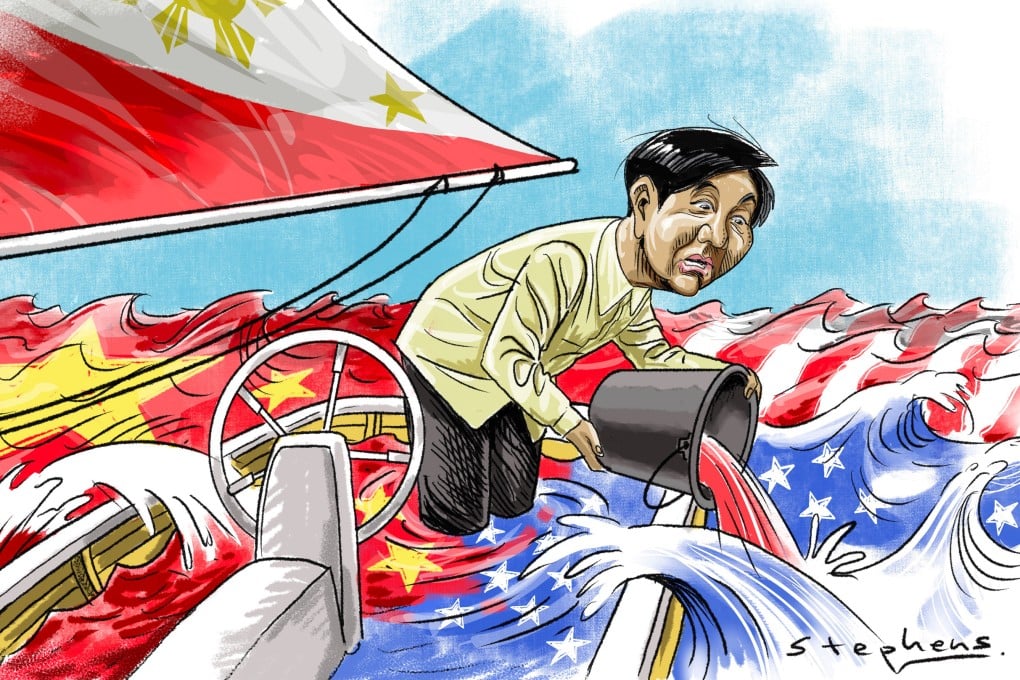Advertisement
Opinion | South China Sea: Marcos has resisted drastic moves so far, but for how long?
- Calls in the Philippines are growing, for measures from building a lighthouse on Second Thomas Shoal to inundating China with litigation
Reading Time:4 minutes
Why you can trust SCMP
2

Soon after his landslide victory in 2022, Philippine President Ferdinand Marcos Jnr vowed not to allow “a single millimetre” of the nation’s coastal rights to be “trampled upon”. Crucially, he invoked the “very important” 2016 Hague ruling which rejected the bulk of China’s expansive claims over the South China Sea.
“We will use it to continue to assert our territorial rights. It is not a claim. It is already our territorial right,” he said, emphasising the final and binding nature of the tribunal award. China, which refused to participate in the international court’s proceedings, has flatly rejected the decision as “just a piece of waste paper”.
Guided by realpolitik, Marcos Jnr has made clear the Philippines “cannot go to war” over the South China Sea and will “talk to China consistently with a firm voice” – a position that has guided his foreign policy over the past two years. But nearly a decade after the arbitration award and with increasing – and increasingly violent – clashes in the disputed waters, there is growing pressure for him to adopt more radical measures.
Some strategists have pushed for Manila to open a second arbitration case against China while others suggest a full alignment with the United States and other Western powers in a brewing cold war against China. By all indications, however, Marcos is determined to pursue a middle course, combining military deterrence and diplomatic engagement to protect the interests of the Philippines.
But a symphony of misunderstandings haunts bilateral relations. On Beijing’s part, Manila’s leadership has been duplicitous and/or aiding a US-led containment strategy in Asia. Accordingly, the Philippine decision to file an arbitration case against China while welcoming an expanded American military presence on its soil in the early 2010s are seen as part of a greater Washington-led geopolitical plot.
Chinese authorities have also accused the Marcos administration of betraying prior agreements, including an alleged promise not to fortify Philippine military facilities in disputed areas such as the Second Thomas Shoal.
Advertisement
